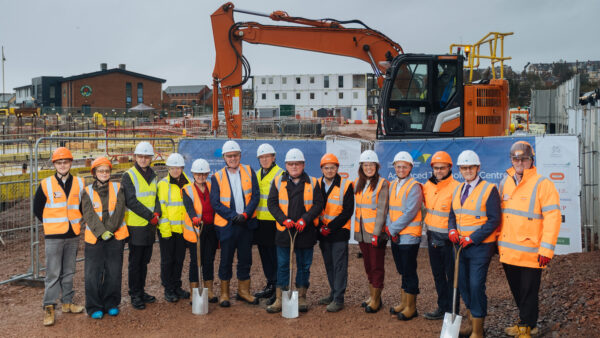New research highlights abuses migrant workers suffer in construction supply chain.
Following on from the release of its campaign document last year, Modern Slavery: The dark side of construction, the CIOB is gearing up to launch a new study or ”toolkit”, titled Building A Fairer System: Tackling modern slavery in construction supply chains.
It aims to investigate the root causes of modern slavery, looking particularly at labour and materials supply, where worker abuses often occur.
Read related articles
Marshalls streamlines supply chains; CH2M creates global welfare policy
The report is particularly apt as, since its introduction in March 2015, the Modern Slavery Act has been galvanising the industry and making companies more aware for the need for better practice and monitoring of their supply chain.
Speaking about the report, UK anti-slavery commissioner Kevin Hyland said that as supply chains have become globalised, and demand for cheap products and cheaper labour has continued to increase, the risk of slavery in supply chains – in the UK and internationally – has become much greater.
He said this cannot be accepted as “business as usual” for contemporary society and it is up to governments, citizens and businesses to work to ensure that the economy is not based on a model that allows exploitation.

Migrant workers in Qatar: the CIOB is highlighting the need for ethical practices to be embedded in supply chains. (Dreamstime.com)
Hyland added: “We need to shift away from profit being viewed as the sole measure of success. No profit margin should be worth a human life. We must look at success through a longer-term lens of sustainable growth, and the ethical treatment of workers is central to this.”
The report is divided into two sections, which look at the two root causes for modern slavery, namely recruitment of labour and procurement of materials.
With regards to labour, the report principally looks at how workers from developing nations become trapped and end up working on prestigious projects, such as 2022 World Cup stadiums in Qatar.
“We need to shift away from profit being viewed as the sole measure of success. No profit margin should be worth a human life.”
Kevin Hyland, UK anti-slavery commissioner
It also looks at how corruption plays a major part, starting in the country of origin, where workers pay exorbitant recruitment fees to get a job. On arrival in the country of work, labourers are heavily in debt and vulnerable to exploitation.
Looking at the problems from the materials side, it investigates weaknesses in procurement systems and how all parties need to take more responsibility. The report recommends more robust on worker welfare into their criteria.
The report contains several case studies that show companies who have implemented good practice changes to shore up their supply chain, or who have discovered problems and been able to rectify and improve standards.
The CIOB study also explains that many industries are now making serious efforts to improve the transparency of their supply chain, as well as pledging to eradicate illegal recruitment fees – so it is vital construction is not left behind.










